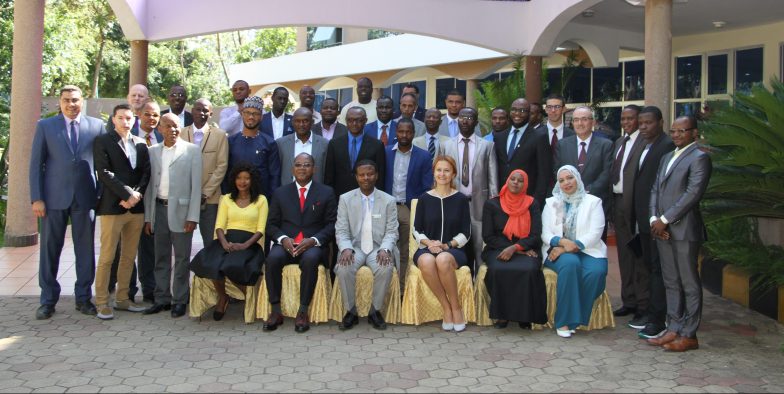The Regional Workshop on lessons learned in applying the IAEA general safety requirements (GSR) part 3 is being hosted by the Tanzania Atomic Energy Commission in Arusha 4- 8 November 2019. The purpose of the event is to identify key lessons learnt from applying and implementing the International Safety Standards: IAEA Safety Standards Series No. GSR Part 3. The workshop will also discuss how to address the challenges identified. The output from the workshops will be used as one of the inputs to the International Conference on Radiation Safety to be held from 9 to 13 November 2020 in Vienna.
The workshop was opened by the Director General, Tanzania Atomic Energy Commission Prof. Lazaro S.P. Busagala who urged the participants to discuss and come out with recommendation of how to overcome the challenges of implementing the safety standards. The meeting is being attended by 23 Regional experts from Africa.
On his part Head of the Radiation Unit at the International Atomic Energy Agency (IAEA) Mr Tony Colgan said that workshop members should discuss and adopt strategies that would improve protection, security and control of radiation sources. He emphasized that the IAEA would like to get a glimpse of those countries’ experiences in applying these international standards.
These Standards are published in the IAEA Safety Standards Series, which includes other related international standards, such as the Regulations for the Safe Transport of Radioactive Material (the IAEA Transport Regulations (No. SSR-6)); Governmental, Legal and Regulatory Framework for Safety (General Safety Requirements No. GSR Part 1); Preparedness and Response for a Nuclear or Radiological Emergency (No. GS-R-2); The Management System for Facilities and Activities (No. GS-R-3); Safety Assessment for Facilities and Activities (General Safety Requirements No. GSR Part 4); Predisposal Management of Radioactive Waste (General Safety Requirements No. GSR Part 5); and Decommissioning of Facilities (General Safety Requirements No. GSR Part 6).
Three related safety guides, published recently in cooperation with UN Environment, will help national experts and governmental organizations enhance the protection of people and the environment from the harmful effects of radiation. These guides provide guidance on the implementation of the requirements in the International Basic Safety Standards.
Radiation and radioactive substances have many beneficial applications, ranging from power generation to uses in medicine, industry and agriculture, and “radiation risks to workers and the public and to the environment that may arise from these applications have to be assessed and, if necessary, controlled and subjected to safety requirements. The recommendations provided in these three Safety Guides, together with the requirements of IAEA General Safety Requirements( GSR Part 3), provide a basis for including environmental considerations in the assessment and management of radioactive sources.

